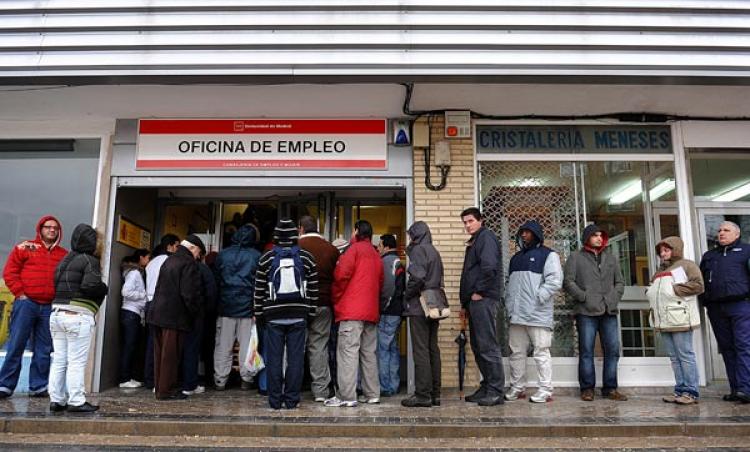It is a troublesome expectation of financial markets that some of the ex-communist countries in Europe, primarily located in the Balkans and the Baltic, may soon be unable to pay their foreign debts, leading to the inability to meet financial needs and sustain liquidity. Some may even plunge into a rollercoaster financial dive that would worsen their already difficult situations.
Some of the fundamental disadvantages in the eastern European bank sectors materialize from domestically managed banks and the like that are part of foreign subsidiaries. They often exist in close partnerships with local banks. Irresponsible lending can be blamed for ever-increasing defaults on loans for both such banks. In this blaze, some local banks are forced to leave the stage completely, while others wait for decisions of financial support from their headquarters, native or foreign, in hope of continued existence, even though problems in the sector abound because of the global crisis. One of the measures taken is to withdraw from foreign lending as was the case with Greek banks, advised by their government to stop trading in the Balkans.
Even though the financial crisis is affecting everyone, the European countries are confronted with other concerns such as soaring unemployment rates and loss of export markets to the West and overseas.
Spain is cited as the EU state with the highest unemployment rate, at 13.9 percent for the last quarter of 2008, and expecting to rise up to 16 percent, according to Spanish authorities. Some EU experts even predict a towering 19 percent, stoking the Spanish recession. Since January 2007, Bulgarian and Romanian workers have had free access to Spain’s labor markets. As a result of Spain’s recession, many of these workers now have to return to their homelands due to shrinking job opportunities, and the funds these migrant workers once regularly transferred to support their families at home have dried out. Left without job opportunities abroad, upon return to their native countries these workers add to overall domestic unemployment rates.
EU states have to face a reality of crumbling export markets. Ukraine, for instance, being dependent on coal and steel exports from Russia, deserted an arrangement with the International Monetary Fund (IMF) and settled for a rescue plan plan of $16.4 billion. Latvia’s GDP is expected to decrease 12 percent, even though the country stays under the protective umbrella of the IMF.
Looking for objective resolutions and to lessen the effects of global stagnation, countries like Czech Republic and Poland have decided to decrease their interest rates. But what could be advantageous in one situation may prove to be disadvantageous in another: Lowering interest rates causes domestic currencies to crumble and creates financial obstacles for homeowners possessing mortgages in foreign currencies such as euros or Swiss Franks.
The prospects in these agonizing times for many EU members are not as grim as some may imagine. The Eastern EU banking sector’s heavy intertwinement with the West may well lead to continued financial support from the West. Countries with stable governments and well-managed financial sectors have a higher survival rate. It will also require strong political power to maneuver and balance in the current turbulent markets.
The burden of proof is once more in the hands of ordinary citizens. People from ex-communist countries like Bulgaria, Romania, Hungary, Serbia, and others in the late ’80s and early ’90s were faced with hyperinflation and sudden devaluation of local currencies, mass unemployment, and dim prospects for a better future. Their economies collapsed to a stall and emerged and developed to various degrees. The current economic crisis may leave some states in even poorer condition. So it has yet to be seen if the answer is: “Yes” or “No” to the Economist Magazine’s rhetorical question: “If you mix East Asia from 1997 with Latin America in 2001, do you get Eastern Europe in 2009?”
Some of the fundamental disadvantages in the eastern European bank sectors materialize from domestically managed banks and the like that are part of foreign subsidiaries. They often exist in close partnerships with local banks. Irresponsible lending can be blamed for ever-increasing defaults on loans for both such banks. In this blaze, some local banks are forced to leave the stage completely, while others wait for decisions of financial support from their headquarters, native or foreign, in hope of continued existence, even though problems in the sector abound because of the global crisis. One of the measures taken is to withdraw from foreign lending as was the case with Greek banks, advised by their government to stop trading in the Balkans.
Even though the financial crisis is affecting everyone, the European countries are confronted with other concerns such as soaring unemployment rates and loss of export markets to the West and overseas.
Spain is cited as the EU state with the highest unemployment rate, at 13.9 percent for the last quarter of 2008, and expecting to rise up to 16 percent, according to Spanish authorities. Some EU experts even predict a towering 19 percent, stoking the Spanish recession. Since January 2007, Bulgarian and Romanian workers have had free access to Spain’s labor markets. As a result of Spain’s recession, many of these workers now have to return to their homelands due to shrinking job opportunities, and the funds these migrant workers once regularly transferred to support their families at home have dried out. Left without job opportunities abroad, upon return to their native countries these workers add to overall domestic unemployment rates.
EU states have to face a reality of crumbling export markets. Ukraine, for instance, being dependent on coal and steel exports from Russia, deserted an arrangement with the International Monetary Fund (IMF) and settled for a rescue plan plan of $16.4 billion. Latvia’s GDP is expected to decrease 12 percent, even though the country stays under the protective umbrella of the IMF.
Looking for objective resolutions and to lessen the effects of global stagnation, countries like Czech Republic and Poland have decided to decrease their interest rates. But what could be advantageous in one situation may prove to be disadvantageous in another: Lowering interest rates causes domestic currencies to crumble and creates financial obstacles for homeowners possessing mortgages in foreign currencies such as euros or Swiss Franks.
The prospects in these agonizing times for many EU members are not as grim as some may imagine. The Eastern EU banking sector’s heavy intertwinement with the West may well lead to continued financial support from the West. Countries with stable governments and well-managed financial sectors have a higher survival rate. It will also require strong political power to maneuver and balance in the current turbulent markets.
The burden of proof is once more in the hands of ordinary citizens. People from ex-communist countries like Bulgaria, Romania, Hungary, Serbia, and others in the late ’80s and early ’90s were faced with hyperinflation and sudden devaluation of local currencies, mass unemployment, and dim prospects for a better future. Their economies collapsed to a stall and emerged and developed to various degrees. The current economic crisis may leave some states in even poorer condition. So it has yet to be seen if the answer is: “Yes” or “No” to the Economist Magazine’s rhetorical question: “If you mix East Asia from 1997 with Latin America in 2001, do you get Eastern Europe in 2009?”






